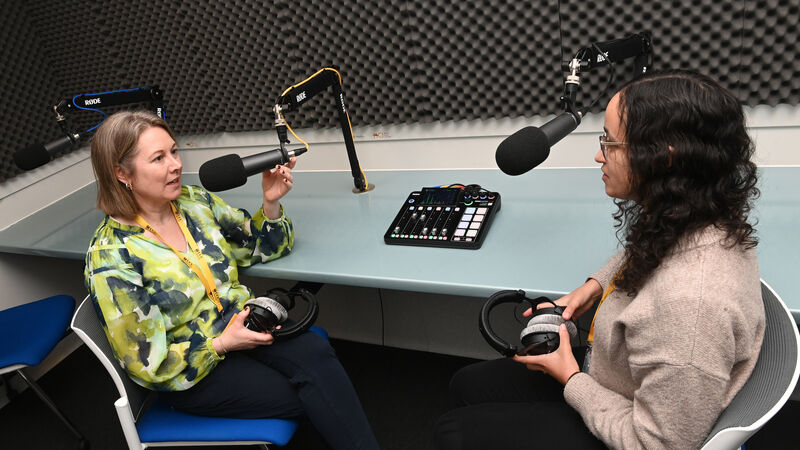Will our talented graduates trump tariffs? UCC hub hopes so

Dr Anna Scanlan in the podcast recording studio at the iEd hub, located in the ASSERT Centre in the Brookfield Health Sciences Complex on College Road, Cork. Picture: Larry Cummins
In front of me in the Assert Research Centre in the College of Medicine and Health at University College Cork (UCC), is a giant industrial vat.
To my right, there are rows and rows of steel clinical equipment, and to my left, there are more stations filled with lab equipment.















